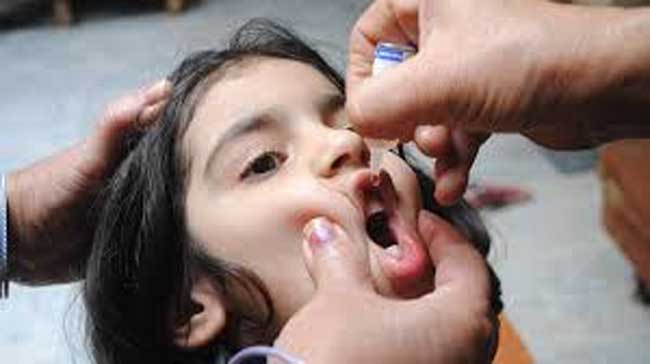The continued emergence of polio cases from North Waziristan district in Khyber Pakhtunkhwa reveals that the vaccine refusal occurrence extends to more than just a few families. The 12th case of wild poliovirus occurred earlier this week after a 21-month-old boy experienced loss of movement in his right leg. This latest case is the ninth one to emerge from the Mir Ali union council in North Waziristan district. News reports saying health officials have disclosed that other places in KP also remain at risk. They include South Waziristan, Dera Ismail Khan, Bannu, Tank and Lakki Marwat. Regardless no case has come up from these areas in recent months. Environmental samples have shown the presence of the poliovirus there. The aggressive resurgence of polio in this area was surprising as zero cases had been reported in the previous 15 months. Such a high number of cases reported in a short period of time. The first polio case was reported in April from Mir Ali should be observed as a call for urgent action. Ensuing reports about the two initial polio patients in Mir Ali had disclosed that both were cases of silent refusals. The affected children had, thus, remained unvaccinated and affected to the virus. In fact, both had false markers on their fingers. Unfading blue ink is used by vaccinators to distinguish vaccinated children from the rest during door-to-door campaigns. The fingers of these children had been marked by their parents to evade the vaccine dose. Such reports show that this phenomenon was also common elsewhere. Now that the appearances of new cases has shed light on the constant issues in the management of vaccination campaigns, increased scrutiny by polio officials and other health workers is necessary so that the various defects in the programme can be addressed and long-standing problems that are often pointed out by international health bodies are removed. It may be wise to shift the concentration of anti-polio efforts from mass vaccination to planned interventions in high-risk areas.
Pakistan posted 2 Jun 2022.The outbreak in North Waziristan appears to be following the same design as that witnessed in 2014 and 2019 when there was a surge in cases in the same area. The southern districts of Khyber-Pakhtunkhwa, namely North and South Waziristan, DI Khan, Bannu, Tank and Lakki Marwat, are at highest risk of wild poliovirus. Bannu also reported two positive environmental samples between April and May this year, confirming that ongoing wild poliovirus transmission is not limited to North Waziristan. Preliminary investigations, the child had been paralyzed in both lower limbs and left arm.
A 21-month-old boy has been paralyzed by wild polio in the 12th case of the variant of viral disease in Pakistan this year. All the children affected by wild polio this year belong to North Waziristan. The child in the latest case had onset of paralysis on June 18 and belongs to Mir Ali (UC-2), the Pakistan National Polio Laboratory at the National Institute of Health, Islamabad, has confirmed. The preliminary investigations show the child has been paralyzed in the right leg. The southern districts of Khyber Pakhtunkhwa, North and South Waziristan, Dera Ismail Khan, Bannu, Tank and Lakki Marwat, are at the highest risk of wild polio virus transmission. Bannu also reported two positive environmental samples between April and May this year, confirming that ongoing wild polio virus transmission is not limited to North Waziristan. The Pakistan Polio Programme has repeatedly launched immunization campaigns in southern KP since the first child was found with polio-induced paralysis. The programme continues to strive to ensure that the virus does not spread. Although these cases are happening in the same part of the country, parents and caregivers around Pakistan must remain very vigilant and give their children repeated doses of the polio vaccine.
Polio is found in the U.K. for the first time in nearly 40 years..Aerial view of the Beckton Sewage Treatment Works in London. Between February and May, U.K. scientists found several samples containing closely related versions of the polio virus in wastewater at the plant. For the first time in nearly 40 years, health officials in the U.K. have identified a likely outbreak of polio in London. There have been no cases of polio detected directly in the U.K. Scientists have discovered the outbreak through an indirect route. They have found many versions of the virus in sewage water. The risk to the general public is very low, as the vast majority of people in Britain are vaccinated against polio during childhood. Therefore protected against infection. The agency encourages anyone not fully immunized to schedule an appointment right away. Between February and May, U.K. scientists found several samples containing closely related versions of the virus in wastewater at the London Beckton Sewage Treatment Works which is the largest water treatment plant in the U.K. Polio causes permanent paralysis in people who are not fully vaccinated in about 5 out of every 1,000 cases. Polio spreads through the fecal-oral route. That is, when a person accidentally consumes infected stool. The last case of polio in the U.K. occurred in 1984. The U.K. was declared free of polio in 2003.The pandemic has given polio the opportunity to come surging back in many countries.
Vaccine-derived polio is on the rise. A new vaccine aims to stop the spread. In 2016, the world recorded only a few dozen polio cases across four countries. From 2019 to 2020, the number of polio cases worldwide almost tripled, NPR reported in April, resulting in more than a thousand known cases spread across nearly 30 countries. Last year, the world recorded more than 600 cases of polio.
Sign in
Welcome! Log into your account
Forgot your password? Get help
Password recovery
Recover your password
A password will be e-mailed to you.







